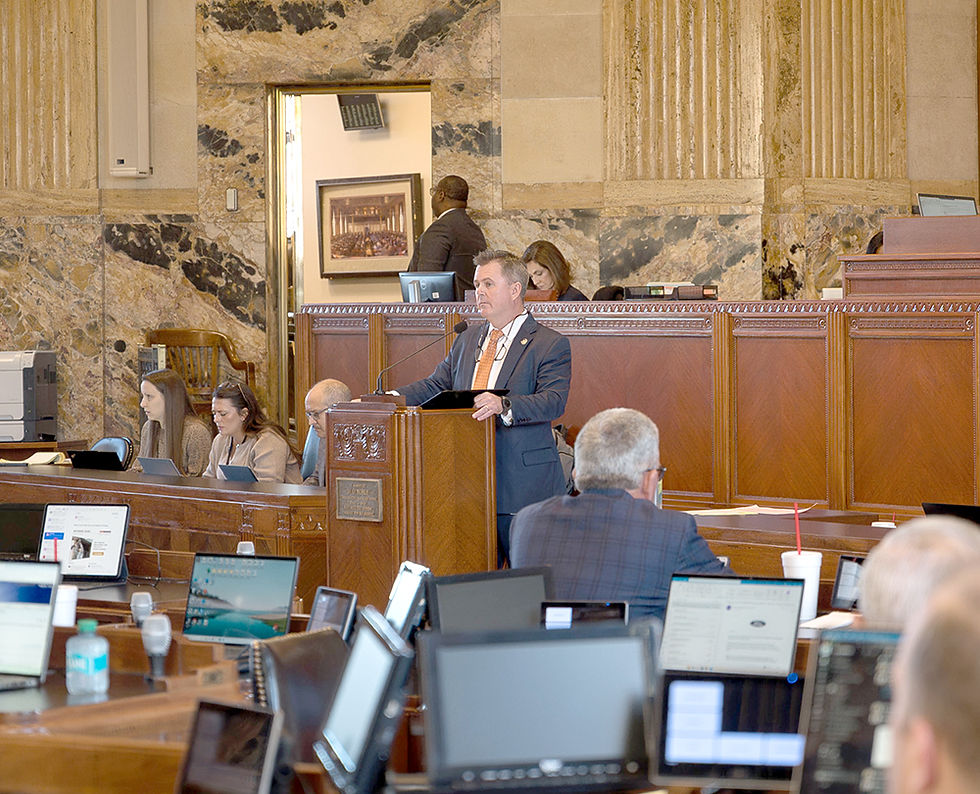Legislature delays primary election, ends session
- By Gracie Thomas, Kylah Babin, Avery White and Sheridan White / LSU Manship News Service
- Oct 29, 2025
- 3 min read

BATON ROUGE — The state Legislature ended the special session Wednesday by voting to delay the statewide primary election next year for one month while the U.S. Supreme Court considers the legality of the state’s two so-called majority-minority congressional districts.
The final vote came in the state House, where lawmakers cleared the election delay in a 73 to 29 vote, which broke along similar lines with the state Senate in its 27-9 vote on Saturday. The vote in both houses reflected hard opposition from black lawmakers who contended that the change is premature and will result in confusion and chaos among voters.
This legislation will move the spring primary election for Republicans and Democrats running in a party primary to May 16 from April 18. The voting date for five state constitutional amendments also is delayed about a month. A second party primary, or runoff, if needed, will occur on June 27 instead of May 30. Candidate qualifying dates were pushed back as well, and signatures on nominating petitions from Sept. 16 remain valid.
Republican legislators argued that a delay was prudent given the uncertainty of when the Supreme Court might rule. Opponents argued there was a bigger motive.
“The ultimate goal of this bill, regardless of if anybody wants to say it or not say it, is to change the dates with the hopes that the Supreme Court strikes down Section two,” of the federal Voting Rights Act said state Rep. Denise Marcelle, D-Baton Rouge. Democrats also worried that a Supreme Court decision could remake congressional districts and eliminate at least one majority-minority district represented by a black member.
Section two of the federal law bans racial discrimination in voting practices and drawing maps. If ruled unconstitutional, Louisiana’s maps would have to be redrawn; possibly eliminating both districts that favor blacks which make up about a third of the state’s residents.
State Rep. Edmond Jordan, a black Democrat from Baton Rouge, echoed his colleague’s concerns about racial motivations.
“I think the frustration most African-Americans feel, and I certainly feel, is that when it’s something that’s beneficial for us, it’s ‘Let’s kick the can down the road; let’s delay,’” he said Tuesday. “When it feels like it’s an advantage for the white citizens of Louisiana, iIt’s ‘Let’s get ahead of this, let’s anticipate, let’s speculate how they will rule on this so we can be prepared.’”
The author of the legislation, state Sen. Caleb Kleinpeter, R-Port Allen, insisted that there are no ulterior motives.
“We’re giving people more time,” he said.
The U.S. Supreme Court heard arguments earlier this year and again on Oct. 15 regarding the Louisiana v. Callais lawsuit, which objects to a “four-two” map that produced a congressional district it says is drawn entirely along racial lines that suppresses the non-black vote. The Republican-majority Legislature produced the current map of six U.S. congressional districts with two majority-minority districts in 2024, both represented by black Democrats, U.S. Reps. Troy Carter of New Orleans and Cleo Fields of Baton Rouge. Two national leaders hold two of the other four districts; U.S. House Speaker Mike Johnson, R-Bossier City and U.S. Rep. Steve Scalise, R-Metairie, the GOP Majority Whip.
Constitutional amendments on the ballot for the new May 16 voting date include a mandatory retirement age for state judges and a restructuring of state civil service.
The House saw heated debates again Wednesday over the new election dates. State Rep. Candace Newell, D-New Orleans, called the Republican efforts, “the Trump Two-Step, which is legislatures rigging elections.” She argued that her Republican colleagues were, “willing to do the will of a president that does not care about Louisiana.”
State Rep. Gerald “Beau” Beaullieu, R-New Iberia, defended the delay of 2026 elections. He cited previous maps that have been deemed unconstitutional.
“Thirty years later, we find ourselves in the same vicious cycle of conflicts with Section 2 challenges and their conflict with the 14th Amendment,” of the U.S. Constitution, he said.
On Monday, leading black Democrats and Louisiana residents from across the state rallied in support of the current congressional maps.
“This is about representation and this is about power,” Davante Lewis, a Democrat and a member of the Louisiana Public Service Commission, said on Monday.

























